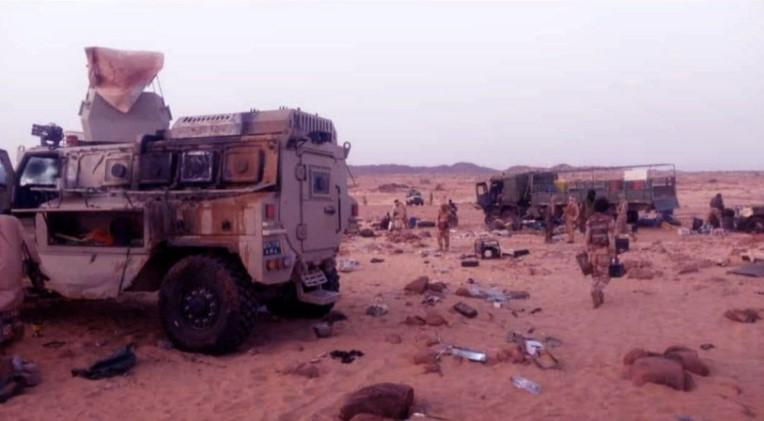In the dusty expanses of Mali, where shifting alliances and covert operations are the norm, the recent ambush on Wagner Group mercenaries has sent shockwaves through the shadowy world of military contractors. This daring attack not only exposed the vulnerabilities of Russia’s once formidable force projection capabilities, but also highlighted the challenges faced by the Kremlin as it seeks to maintain its influence in foreign conflicts. Join us as we delve into the repercussions of the Wagner ambush and explore the implications for Russia’s global military strategy.
The Wagner Groups Failed Ambush in Mali: A Low Point for Russian Force Projection
The failed ambush in Mali by the Wagner Group highlights a significant setback for Russian force projection capabilities. This incident not only reflects poorly on the effectiveness of Russian military contractors but also raises questions about the overall readiness and strategic planning of Russian forces in foreign operations. The lack of coordination, intelligence, and tactical execution exhibited in this operation points to a concerning trend in Russia’s ability to project power beyond its borders.
As Russia seeks to maintain its influence in regions like Africa, the failure in Mali serves as a stark reminder of the challenges it faces in establishing a strong military presence. The repercussions of this botched operation could have far-reaching implications for Russia’s international standing and could potentially undermine its efforts to expand its global reach. Moving forward, Moscow will need to reassess its approach to force projection and address the weaknesses exposed by this embarrassing defeat.
Russias Diminished Military Capabilities Put to Test in Mali
The recent ambush on Wagner Group mercenaries in Mali has once again highlighted the diminishing military capabilities of Russia in the international arena. The attack, which resulted in heavy casualties for the Wagner Group, has underscored the challenges faced by Russia in maintaining its force projection capabilities.
With Russia’s military stretched thin due to ongoing conflicts in Ukraine and Syria, as well as increasing pressure from Western sanctions, the incident in Mali serves as a stark reminder of the limitations of Russian military power. The lack of adequate training, equipment, and logistical support for Russian mercenaries operating in foreign countries has not only exposed the vulnerabilities of Russia’s military capabilities but also raised questions about the effectiveness of its strategy in projecting power beyond its borders.
Implications of the Wagner Ambush in Mali for Russias Global Military Strategy
It is evident that the recent Wagner ambush in Mali has significant implications for Russia’s global military strategy. This event serves as a stark reminder of the challenges Russia faces in maintaining force projection capabilities in various regions around the world. The following key points highlight why this incident underscores Russia’s decimated force projection:
- Loss of experienced mercenaries: The ambush resulted in significant casualties among Wagner Group mercenaries, who were known for their combat experience and effectiveness. This loss not only weakens Russia’s military presence in Mali but also raises concerns about the sustainability of similar operations in the future.
- International backlash: The brazen attack on Russian mercenaries in Mali has drawn international attention and condemnation. This negative spotlight further hinders Russia’s ability to project power abroad, as it may face increased scrutiny and pushback from other countries.
Strategies for Russia to Rebuild and Strengthen Its Force Projection Abilities
In the wake of the devastating Wagner ambush in Mali, it has become imperative for Russia to reassess and revamp its force projection abilities. This bold attack exposed the vulnerabilities in Russia’s current military tactics and highlighted the urgent need for strategic improvements.
To rebuild and strengthen its force projection capabilities, Russia must consider the following strategies:
- Investing in advanced military technology and equipment
- Increasing training and readiness of personnel
- Enhancing coordination and communication among different branches of the military
Insights and Conclusions
the ambush of Wagner mercenaries in Mali serves as a stark reminder of Russia’s diminishing force projection capabilities on the global stage. As geopolitical tensions continue to evolve, it is imperative for nations to reassess their military strategies and capabilities in order to navigate an ever-changing landscape. Only time will tell how this incident will impact Russia’s role in international affairs, but one thing remains certain – adaptability and innovation will be key in maintaining relevance and influence in the modern world.


